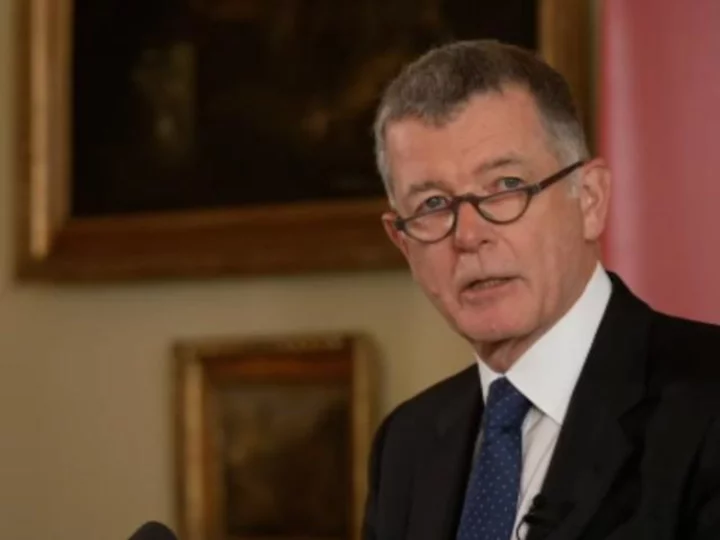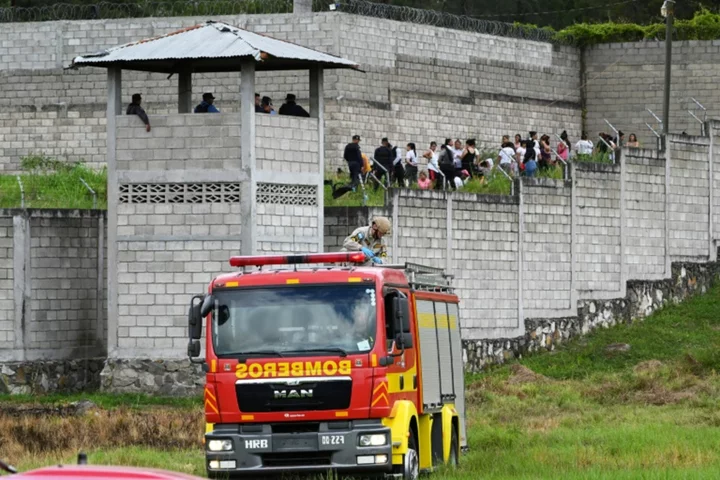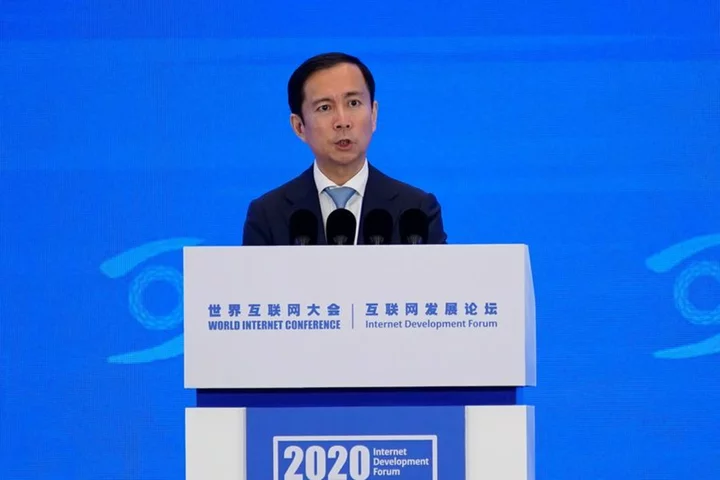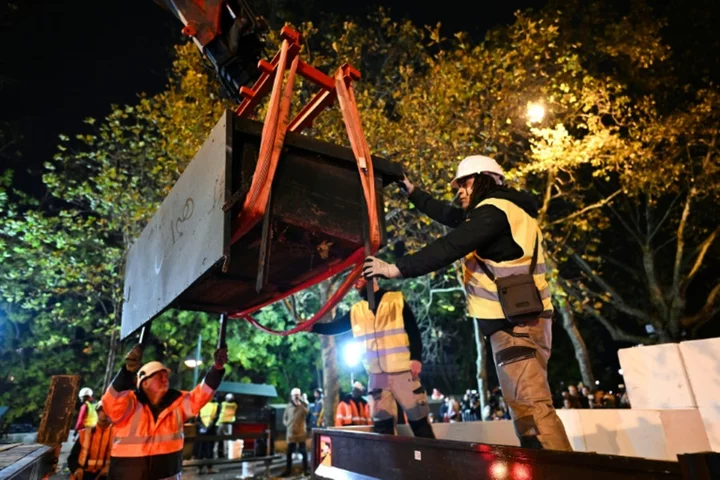It was a rare moment when the publicly visible Kremlin matched the reality behind closed doors.
That is according to the head of Britain's Mi6, who in a rare speech in Prague, gave the first confirmation from western intelligence that the boss of private military group Wagner Yevgeny Prigozhin did indeed strike a deal with Putin to end his advance on Moscow during the failed rebellion of June 24. And he had, it seemed, been welcomed into the Kremlin to meet Putin days later.
The Mi6 chief, known as C, also expressed some bafflement at the tremors around the Kremlin during that weekend, and the speed in which loyalties were spurned and returned.
"If you look at Putin's behaviors on that day", Moore said of June 24, "Prigozhin started off I think, as a traitor at breakfast. He had been pardoned by supper and then a few days later, he was invited for tea. So, there are some things and even the chief of MI6 finds that a little bit difficult to try and interpret, in terms of who's in and who's out."
Moore also gave a rare indication of the continued health and whereabouts of Prigozhin himself, whose characteristically profane and frequent audio messages published on Telegram have recently stopped. Asked by CNN if Prigozhin was "alive and healthy", Moore replied the Wagner leader was still: "floating around", per his agency's understanding.
Western intelligence agencies have been reticent to comment on the failed rebellion, for fear of providing a false backbone to Russia's familiar excuse for internal dissent - that it is arranged and fuelled by western spies. Yet the on-camera speech provided an opportunity for Moore's expression to convey how shocking the weakness betrayed by Putin that weekend had been.
"He really didn't fight back against Prigozhin", Moore said. "He cut a deal to save his skin, using the good offices of the leader of Belarus", he said, referring to the intervention of Belarusian President Alexander Lukashenko who struck the deal. "So even I can't see inside Putin's head", he added. "He has to have realized, I am sure that something that is deeply rotten in the state of Denmark - to quote Hamlet - and he had to cut this deal."
Moore added it was difficult to make "firm judgments" about the fate of Wagner itself, as a mercenary group, but they "do not appear to be engaged in Ukraine", and that there "appears to be elements of them in Belarus."
Moore chose the city of Prague, which he remarked as the last European capital to have Russian tanks roll into it before Ukraine, as a venue for a speech. He began with an unusually open appeal to Russians "silently appalled by the sight of their armed forces pulverizing Ukrainian cities, expelling innocent families from their homes, and kidnapping thousands of children" to spy for the United Kingdom.
"I invite them to do what others have already done this past 18 months and join hands with us. ...Their secrets will always be safe with us, and together we will work to bring the bloodshed to an end."
It was an abnormally public appeal that fit the upended global geopolitics forged by Russia's invasion of Ukraine.
While Moore maintained that China is "absolutely complicit in the invasion" because of its continued support of the Kremlin head, he added that Iran's support for Russia has caused division in its most senior officials. "Iran is clearly keen to make as much cash as it can out of this situation", he said. And while Iran is notably selling drones that usually hit civilian targets, he added: "It will sell anything it can spare and it thinks it can get away with."









